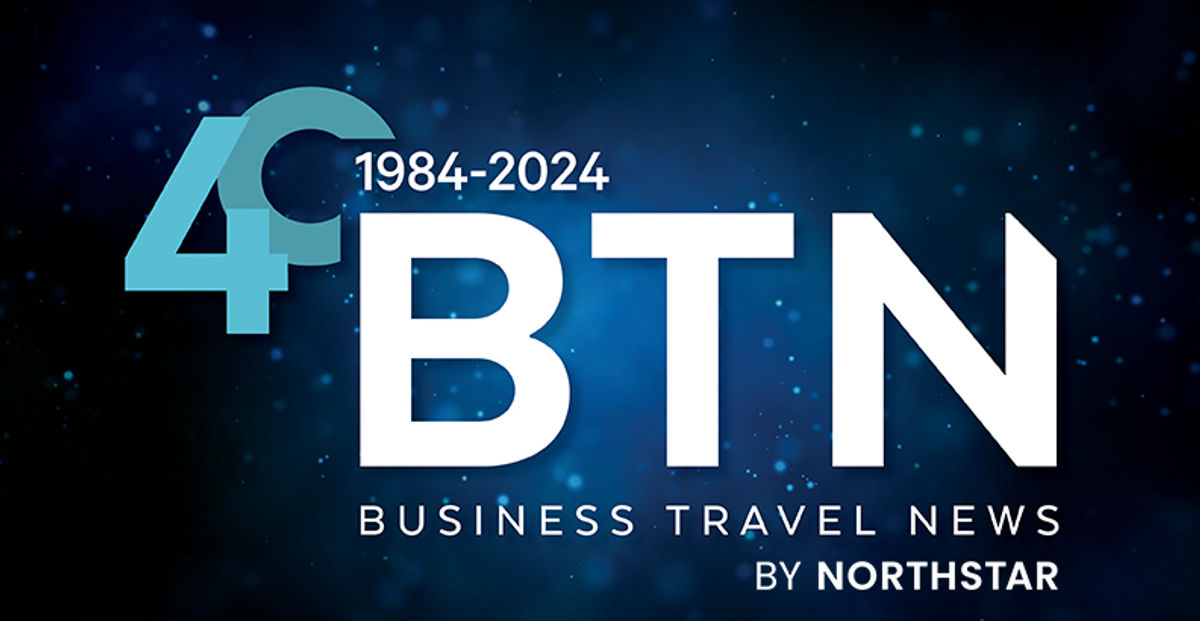Discussions among travel buyers at industry conferences over the past few months indicate a strong interest in change and innovation from travel management service providers, but the path and market for such change is as difficult as ever.
although BTN’s research in recent months has shown that Oded Zehavi, CEO and co-founder of Mesh Payments, said that at least in the small and medium-sized travel planning space, three quarters have not changed their TMC in recent months. [requests for proposals]“For TMC services he sees across the industry. Corporate Traveler and Global Business Travel Association research Last month, more than two-thirds of the 299 SME stakeholder respondents said they were currently looking for a new TMC.
Meanwhile, with Covid-19 travel restrictions largely a thing of the past, the travel management company landscape has not seen the wholesale closures and consolidation that some predicted during the darkest days of the pandemic, but it is certainly an evolving landscape . American Express Global Business Travel plans to acquire CWTOf course, this will be the biggest shift, but many other deals are underway or recently completed, including Direct Travel acquisition A group of investors led by Steve Singh and TravelPerk acquires AmTrav.
Is the RFP worth it?
As a result, the role of TMC RFPs is also changing as some buyers question their value. At a recent benchmarking meeting of BTN’s Top 100 Corporate Travel Buyers, some questioned “the value of conducting an RFP when there is a virtual duopoly…”.
Since all activities are being done through consolidation, TMC is not really willing to participate in bidding without some level of involvement. “
– Rossana Martin, BCD Travel
The ability to serve large global projects is key UK Competition and Markets Authority investigation Join the American Express GBT-CWT merger, Amex GBT has responded to this Objection to claims of limited competition. In that response, Amex GBT and CWT mentioned that an increasing number of suppliers are looking to global multinationals, including technology-led companies such as Navan, or mid-sized TMCs to expand their ambitions, For example, Fox World Tours.
However, the RFP process is not the place to address the question of whether the TMC can meet the company’s global needs. Travel buyers should enter the process knowing exactly what they need from a TMC, and those who can’t meet those needs are left out of the process, Rossana Martin, senior vice president of global sales for North America at BCD Travel, said at the education session. This year’s GBTA convention was held in Atlanta.
“Don’t send out a blanket RFP,” Martin said. “If TMCs want to integrate the right value proposition, they need to understand what is important and need to keep the goals of the organization in mind.”
For example, if a company requires an end-to-end solution, some potential bidders should be ruled out from the outset, she said. If the SDGs are a company’s top priority, then a TMC that cannot help the company achieve those goals should not be bidding.
Martin said doing this before the RFP can save a lot of effort. Through workshops and discovery, she said, a large portion of bids “are awarded before the RFP is released.” “We met with a client who did the preliminary work and they told us we won in the first meeting.”
Instead, she said, most customers who develop RFPs for TMC services end up staying with their existing businesses, again demonstrating that the process can be a waste of resources without proper planning.
In the current environment of TMC, if there is not sufficient preparation, there may not be much reaction.
“Bidding is a huge undertaking,” Martin said. “As all activities are being done through consolidation, TMC is not really willing to participate in bidding without some level of involvement.”
The importance of stakeholders
Buyers said during procurement that involving the necessary stakeholders from the beginning, including senior leadership and anyone involved in the entire process, such as IT or administrative assistants who handle high-volume bookings, is key to a successful TMC RFP. GBTA Education Conference. These stakeholders also need to understand the complexities of TMC decision-making.
What we buy is not a computer; There are many layers to the travel we buy: technology, ESG, agency teams. You don’t just buy one thing. You bought 10 items. “
-Grace Knowlton, General Atlantic
Grace Knowlton, director of global travel and expenses for General Atlantic, said she had to make it clear to those within the company who thought the process would take three months that it wasn’t.
“We’re not buying computers; we’re buying travel, and there are many more layers to travel: technology, ESG, agency teams,” she said. “You’re not just buying one thing. You’re buying 10 things, and you’re taking the time to make sure it lasts three, five, 10 or 15 years.”
She said being involved during the RFP stage will make subsequent steps after winning a bid smoother. “Involving them and giving them a voice makes them feel like they’re involved in the decision-making,” Knowlton said. “When you get into the implementation phase and you get buy-in, you can make change management decisions more easily.”
Intuitive Corporate Travel and M&E manager Katie Hollien said the preparation “helped us to be successful” in completing the company’s TMC RFP. “We had the right stakeholders in place to ensure we agreed on timelines and dates and achieved our goals,” she said.
On the other hand, failing to bring in stakeholders from the start can be a serious mistake, Martin said. She said she had won a bid from one client, but when they discussed implementation with the IT department, they found IT support was so severe that they couldn’t launch for two years.
“If you don’t understand what each stakeholder is doing, if they don’t have the time to implement TMC, that can derail your entire process,” she said.
Looking forward to more
The RFP is an opportunity to highlight what TMCs can do beyond core services, and analysts say they should be customized to meet those specific needs. It’s not effective to provide a long list of questions that have nothing to do with the company’s core goals.
“They can say yes, yes, yes, but it doesn’t add any value,” Travel Consulting Group managing partner Jens Vongehr said at this summer’s European Business Travel Show. “It’s about analysis, it’s about focus, it’s about consultation.”
Buyers at the CT100 Benchmarking Conference talked about some of the ways they maximize the potential of their TMC services. Talking about the “duopoly” buyers also said they were getting a “pretty big bang” [their] As a result of American Express GBT’s investment in its advisory arm, they have “benefited significantly” in terms of advisory services. Another buyer said they are using their own agency to manage soft dollar programs with airline partners. A third buyer said that when they implemented TMC, they were given the task of building a new portal for them and working with the marketing and communications department.
“We’re getting more services from TMC, and we’re getting innovation,” the buyer said.
However, as these expectations expand, buyers should not lose focus on an agent’s core capabilities. One CT100 buyer noted that no matter how many agents service an account, only a small percentage will be satisfied with VIP service, and buyers are advised to put these expectations in writing in advance.
Hollion said making sure she had the right attorney was a key part of her negotiations.
“You can also use the best online bookings and the best portals, but the first step to a successful TMC relationship is having the ability to book travel,” she said. “If the agent isn’t the best you can find, you might as well throw everything else out the window.”







